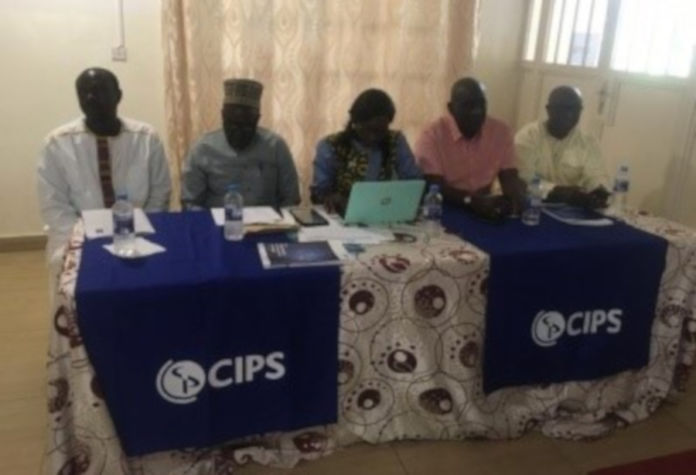By: Kebba AF Touray
The Gambia Branch of the Chartered Institute of Procurement and Supply (CIPS) was over the weekend launched in Banjul.
The institute aims to promote and lead excellence in procurement.
Speaking on the occasion, Fatou Ceesay Jarju, the Chairperson said the institute aims to promote good practice and provide services for the benefit of a procurement community of more than 100,000 members.
“CIPS aims to promote and develop high standards of professional skills, ability and integrity among all those engaged in purchasing and supply chain management,” she said; that CIPS members are required to uphold a good code of conduct and ethics in order to enhance and protect the standing of the profession; that they should do this to maintain the integrity of the Institute and eradicate all unethical business practices in order to enhance proficiency and ensure compliance with laws and regulations regarding procurement.
“Our mission includes the promotion of local professional networks and representation, visibility and management of the local environment, develop relations between members and the branch and to facilitate knowledge sharing that is aligned to CIPS strategy,” she said.
Abdoulie Njie of the Gambia Public Procurement Authority (GPPA) said the country is endowed with human resources and as such emphasized the need for students studying procurement to be focused in their career as procurement officers.
“Procurement emerged in the last one and a half decade but in the 21st century, it is thriving to lead the world. This is why CIPS branch is formed in the country in order to boost and enhance the profession. Procurement is one of the most important functions that is called upon at the National Assembly when the budget is deliberated on,” he said. He challenged students studying procurement to be proactive and align their conduct with the best procurement procedures so as to maintain and add value to the profession.
Kainding Sambou of the Finance Ministry said while good public procurement is a pre-requisite for growth and effective public investment, poor governance of public procurement systems can turn public investment into major political and economic liabilities; that poor governance of public procurement can hinder development goals, outcomes and results in addition to costs and waste of public funds. Sambou said public procurement is an essential element of Governance reform and makes up about 15 to 20 percent of GDP; that it contributes to greater competition by stimulating trade and fostering direct foreign investment; that all of this is guaranteed by competent procurement officials.
Kebba Sallah of the GPPA lamented that public procurement requires transparency and accountability; that suppliers must be acquainted with the principles and processes of procurement such as planning and efficiency, as well as preventing fraud and corruption.
Tijan Jobe, said procurement is a core instrument in the implementation of any development project of institutions; that a good procurement officer must be honest, transparent and accountable and must be a person of high integrity.
Jennifer Akongbota, a representative of CIPS West Africa, said the Institute was established in 1932 as the largest global professional body with a current membership of 180 countries. She urged procurement officers to be knowledgeable in their work which she said requires spending people’s money; that such work need transparency and accountability.




















